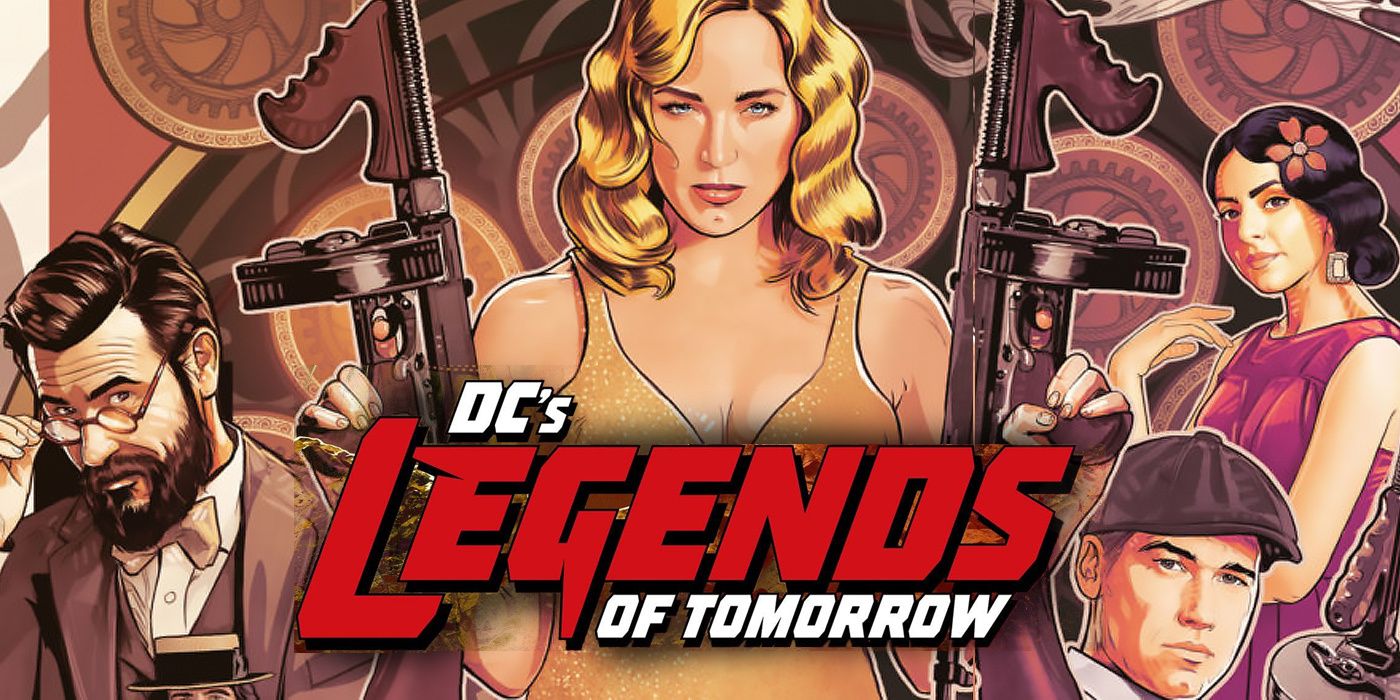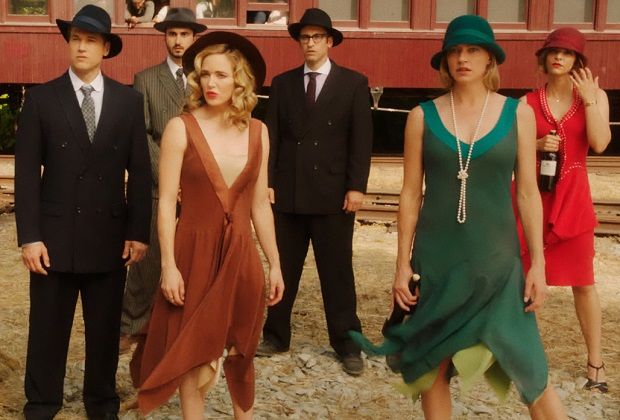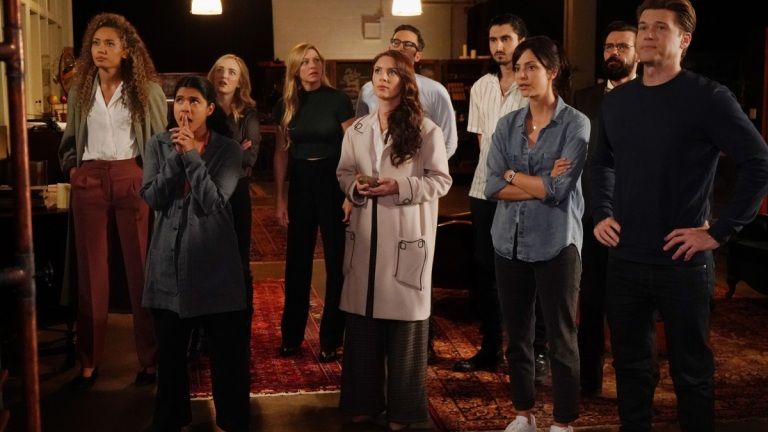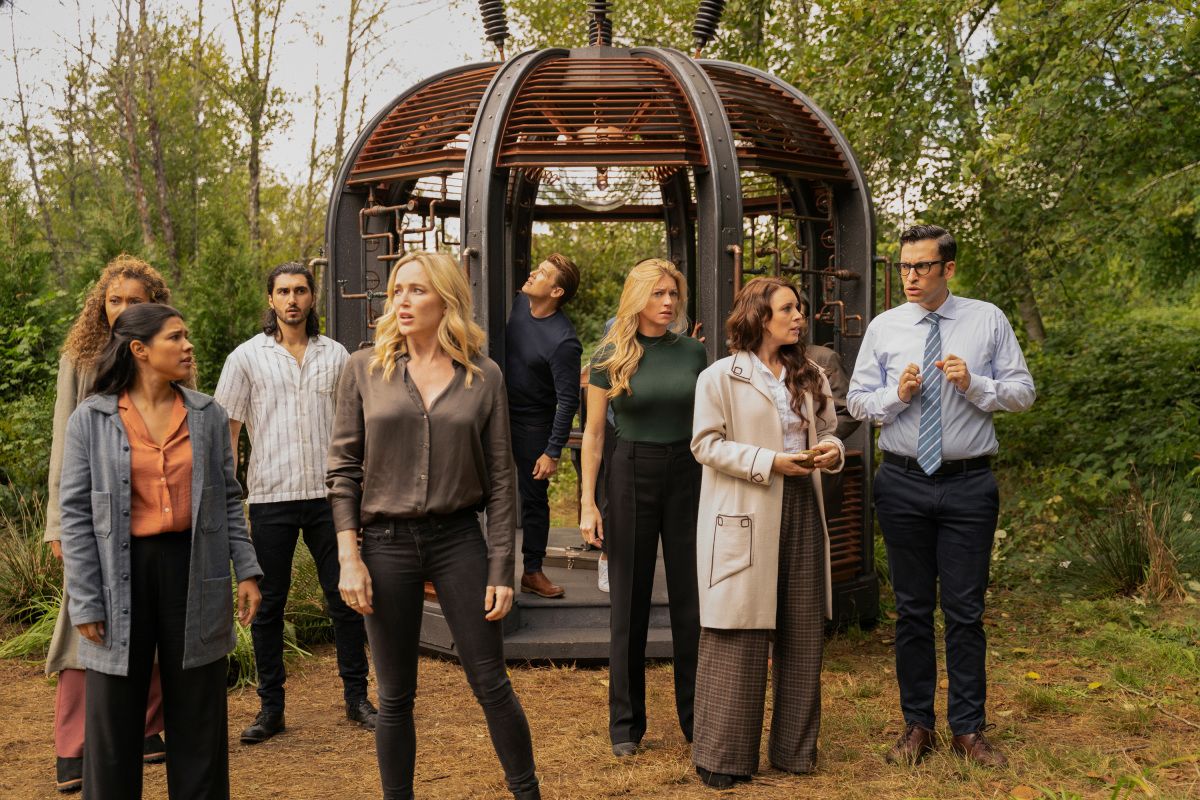[Editor's note: The following contains spoilers for DC’s Legends of Tomorrow Season 7]DC’s Legends of Tomorrow has always felt like the black sheep of the CWVerse but it’s owned its uniqueness. Now in its seventh season, the showrunners have settled into their groove. Anything and everything can — and will — happen on this show, but that doesn’t mean the series can’t be entertaining, politically relevant, and ultimately, heartwarming.
We’re at the mid point of DC’s Legends of Tomorrow Season 7 and despite being only seven episodes long, the season has been the best of the series. Aliens, robots, time travel, team drama and romance have all come together so cohesively it’s hard to remember a time when the show’s writing and tone was all over the place.
At the end of the sixth season, the Legends had defeated an alien invasion on Earth in 1925, and were all set to return home when boom, a second Waverider appeared and destroyed theirs, leaving the team stranded in the past. Most of us expected the problem to solve itself in the Season 7 premiere, but “The Bullet Blondes” doubled down on the Legends being displaced in time. And that wasn’t all. The Legends lost John Constantine (Matt Ryan), whose magical powers could have easily rectified the situation.
The team was also split up – Esperanza 'Spooner' Cruz (Lisseth Chavez) and Astra Logue (Olivia Swann) were stuck on Spooner’s mother’s farm with a human version of their AI, Gideon (Amy Louise Pemberton), in tow. Elsewhere, co-captains Sara Lance (Caity Lotz) and her wife Ava Sharpe (Jes Macallan) had resorted to robbing banks as The Bullet Blondes. Without the Waverider’s resources, the team needed cash to survive, and the boys, Nate Heywood (Nick Zano), Behrad Tarazi (Shayan Sobhian) and Gary Greene (Adam Tsekhman) are all lovers, not fighters. The final member of the team, Zari 2.0 (Tala Ashe) was nursing a broken heart.
Despite being displaced and in disarray, the Legends have felt more settled. The writers have allowed the Legends to use their brains, wits and team dynamics to survive in the 1920s, instead of relying on magic and technology.
Nate has had uninspiring character arcs in the past few seasons, but this season his knowledge of history has come to the fore. And the team has needed it, because without the help of Gideon, they would have no way to maintain the timeline. Admittedly, these are the Legends and they’ve done a terrible job of not messing up the timeline, but at least they tried.
Siblings Zari Tomaz (the original Zari) and Behrad have brought their engineering skills to the forefront, but also their empathy and understanding. Behrad finds a way to get along with everyone, sees the positive side of every situation and is generous to a fault. Zari bonded with Gwyn Davies (Ryan) over their shared life experience of love, loss and war. The introduction of Gwyn Davies’ PTSD and his relationship with his sexuality has added another queer plotline to the show, along with even more tension and emotional beats.
The best part about this season has been how the writers have employed the characters’ 21st century sensibilities to comment on the bigotry of the past—and the present. DC’s Legends of Tomorrow has dabbled in political messages before, but this season showed us that they can make a statement but still be thoroughly entertaining. Back in Season 1, the team had travelled to the 1950s, and the writers were blunt about how often the era is romanticized by those unaffected by the inherent bigotry. Sara pointed out how women had little recourse when faced with predatory behaviour from male colleagues, and the queer community had to remain hidden. The Black members of the team, Kendra Saunders (Ciara Renée) and Jefferson “Jax” Jackson (Franz Drameh), had to contend with microaggressions and blatant racism.
While these instances have cropped up from time to time over the years, in Season 7, the make up of the team is majority female and half of them are people of color. Their experiences will differ and the showrunners have not shied away from showing that.
But it’s not enough to just show us how bad things were. Instead, DC’s Legends of Tomorrow has embraced the bolder moves of shows like Supergirl and Black Lightning to tackle social justice. The 1920s storyline has been ripe for these political discussions. The racism and sexism of the era have played a key role in instigating the Legends to act. Their mission has always been to preserve the timeline, but in this season, they’ve chosen not to blindly follow their prime directive. Minor changes have led them to save the life of a singer destined to be killed by her violent mobster partner, and the Legends rescued a Black-owned queer-friendly speakeasy. The show introduced J Edgar Hoover (Giacomo Baessato) whose racial biases were a true danger to the people, as Nate found out for himself when he, Behrad and Gary interviewed a train full of suspects — the wealthy white passengers admired Hoover, while the poorer passengers, who were also from many marginalized communities, shared the horrors of being profiled by the FBI. Sara even joked about Nate using his superpowers as a straight white man to get them into places.
Even after time-jumping out of the 1920s, the writers continued to challenge history. The Legends chose to save the citizens of Chernobyl though they couldn’t prevent the disaster in time. However, the pinnacle of the show’s ahistorical takes was in "A Woman's Place Is The War Effort!" After crashing into the 1940s, near a fictional assembly plant, Gideon, Spooner, Astra, Sara and Ava went undercover to retrieve the parts they needed to fix Davies’ time machine. The only problem? Segregation. Spooner and Astra were sent to janitorial duty making it nigh impossible for Spooner to build the parts needed. Astra eventually took matters into her own hands and forged memos allowing an integrated workforce and better conditions for the women to work in.
The episode began as more infuriating evidence of the systemic injustices that still plague the US, before turning into a story of camaraderie and hope. The episode’s B-plot was a welcome respite from reality as viewers learned about the Tarazis' traditional customs. The showrunners even managed to make the death of Bishop (Raffi Barsoumian) – the man who destroyed the Waverider and created an evil version of Gideon – tragic because he’d found redemption and was killed trying to save the team he once considered his enemies. Aside from the 100th episode of the show, which was a tribute to Pemberton’s long and almost invisible contribution to DC’s Legends of Tomorrow, this season has been dedicated to developing a mature team who finally understand the responsibility of their mission.
We don’t know where the rest of the season will take us, but for a show that’s had to reinvent itself more than once, Season 7 has proved that DC’s Legends of Tomorrow can continue to get bigger and better. It’s easy to showcase prejudice and discrimination in entertainment media, but without commentary on why and how it is an injustice against entire communities, all the show would be doing is creating trauma porn. What DC’s Legends of Tomorrow has done this season is to challenge how we tell stories set in the past and made its ahistorical storylines a cathartic experience for viewers.




